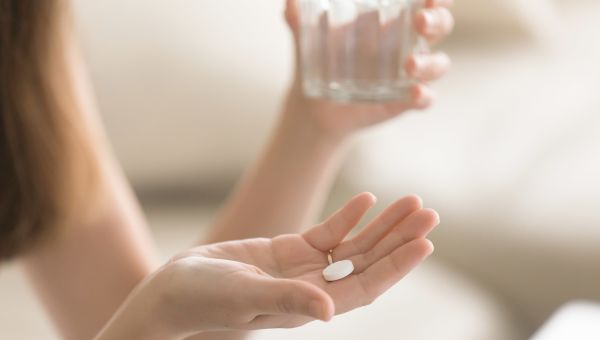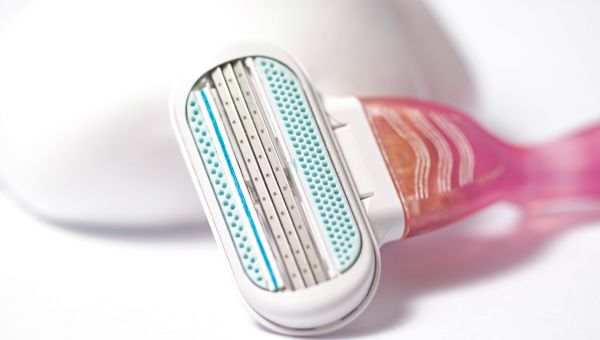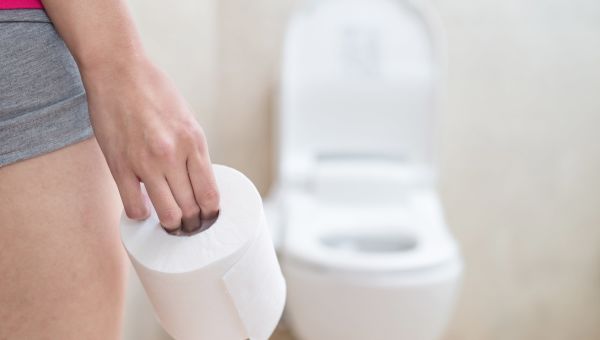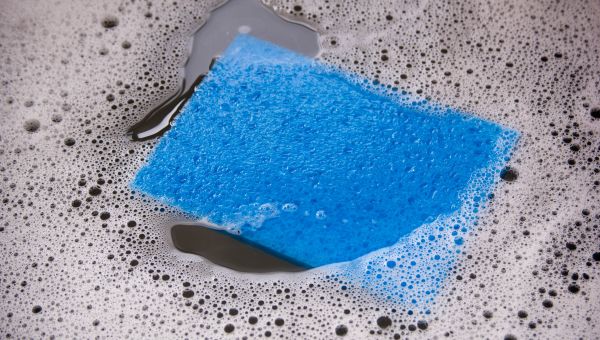7 things you should never do before and after sex
These little habits can dampen your fun and affect your health.
Updated on June 21, 2024

It’s no secret that regular intimacy can benefit your mental and physical health. Among other perks, sex may:
- Improve your heart function
- Lower your stress and anxiety levels
- Reduce aches and pains
But some seemingly innocent habits before and after sex could lead to discomfort or health issues. With that in mind, here are seven things to avoid.

Don’t eat super spicy foods or a meal high in fat
If you’re planning to have sex, you may want to scale back on fiery foods. Spicy items like curry and hot peppers can trigger symptoms of acid reflux. This includes heartburn, a burning sensation in the throat. In turn, this may make it difficult to get in the mood. If your body is sensitive to spice, you may not be able to hold in gas, either.
Citrus fruits, carbonated drinks, caffeinated beverages, and rich, heavy foods that are high in fat (such as fried chicken) can also give you heartburn, since they’re harder for your body to digest.
So, go easy on your stomach. Bites like bananas, oatmeal, apples, and graham crackers are less likely to give you heartburn.

Don't forget about cold and allergy medication issues
Feeling stuffy? You may want to hold off on taking cough and cold meds if you’re planning to have sex later. Antihistamines, which help dry up runny noses, can also have a drying effect on your vagina. That’s because the drugs affect mucous membranes all over the body.
Sex without lubrication may not be very pleasant. In fact, it can cause burning, itching, and pain. So, when you take cold medications, be sure you have a water-based lube handy. This will help ensure you’re wet enough, potentially making the experience more pleasurable.

Don’t drink too much
While a beer or two may put you in the mood, be careful about drinking alcohol to excess before sex. For one thing, it’s a risk factor for male erectile dysfunction (ED), a condition that makes it difficult to get or keep an erection strong enough for sex. Though a couple of alcohol-induced incidents don’t mean you have ED, frequent heavy drinking could lead to long-term issues.
Having too much to drink can also affect judgment during sex. People are more likely to do things they wouldn’t do if they were sober. They make take more risks, like having unprotected sex.
In general, it’s best to avoid alcohol or curb your alcohol intake. Experts recommend that women limit themselves to one drink per day, while men should have no more than two. If you are moderating and still have problems with sex, you may want to cut drinking out completely. See a healthcare provider if erections are consistently tough to get or maintain.

Don’t shave your bikini line right before
Is shaving your preferred way of grooming? No problem—but you should plan ahead. Shaving makes the skin around your genitals more sensitive and prone to irritation caused by friction during sex.
Lower your risk of discomfort by leaving the hair alone or trimming it instead of shaving. Or, consider shaving the day before. To reduce your chances of irritation even further:
- Always use shaving cream or gel.
- Shave in the direction the hair grows.
- Apply a fragrance-free lotion when you're done.

Don’t skip peeing if you’re prone to UTIs
Sex can lead to a urinary tract infection (UTI). That’s because it may force germs into your urethra. So, it’s ideal to pee before and after sex when you can. It will reduce your risk of UTIs.
Waiting five minutes after sex is normally okay, though. If you’re sexually active and getting UTIs a lot, you’ll want to be diligent about going immediately before and after. Try to stay hydrated (drink enough fluids), too. It will dilute the amount of bacteria in your urine, which may reduce UTIs. You may also want to visit a provider to talk about how to reduce your UTI frequency.

Don’t forget to wash your sex toys
Sex toys can be pleasurable. But you have to take care of them so they’ll last—and so they won’t get germy. While it may seem like a no-brainer, dildos, vibrators, penis rings, and straps must be washed to avoid issues like bacterial vaginosis. It's a vaginal condition that causes a foul-smelling discharge.
Many sex toys come with disinfecting instructions, especially if they are battery operated and have a motor. If they don’t include directions, here are some basic guidelines:
- Non-porous toys, or toys made of glass, stainless steel, silicone, acrylic, or hard plastic, should be scrubbed lightly with a mild soap and water. Always remember to scour cracks and crevices, since they're breeding grounds for bacteria. You can also boil these toys in hot water for 10 minutes or so if they are not electronic.
- Porous toys, or toys made of rubber, vinyl, Cyberskin, softskin, ultraskin, nylon or leather, need a very gentle hand soap, or a specific cleaner made just for those types of materials.
If your toys aren't waterproof, it’s best you use a cloth to clean them. If they are waterproof, go ahead and dunk them.

Don't skip the foreplay
Foreplay can get you in the mood—and prepare your genitals for sex. Women may begin to feel wet since there is increased blood flow to the clitoris. Men may start to get an erection as blood flow increases to the penis. Foreplay can also raise your heart rate and may help you feel more relaxed and connected to your partner as you become intimate.
Among other activities, foreplay can include kissing, cuddling, massaging, and oral stimulation. It’s a good time to bring out lube, too. Instead of heading right to the main event, you and your partner can talk about the types of things you both enjoy.

Sleep Foundation. GERD and Sleep. Updated October 7, 2022.
Heidarzadeh-Esfahani N, Soleimani D, et al. Dietary Intake in Relation to the Risk of Reflux Disease: A Systematic Review. Prev Nutr Food Sci. 2021 Dec 31;26(4):367-379.
Cleveland Clinic. Gastrointestinal Soft Diet Overview. Reviewed February 25, 2021.
Mayo Clinic. Antihistamine, Decongestant, And Anticholinergic Combination (Oral Route). Last updated November 01, 2022.
Mayo Clinic. Vaginal Dryness. December 4, 2020.
Goncharenko V, Bubnov R, Polivka J Jr, Zubor P, et al. Vaginal dryness: individualised patient profiles, risks and mitigating measures. EPMA J. 2019 Mar 2;10(1):73-79.
American College of Obstetricians and Gynecologists. Experiencing Vaginal Dryness? Here's What You Need to Know. Reviewed February 2024.
Urology Care Foundation. Erectile Dysfunction: What is Erectile Dysfunction (ED)? Updated June 2018.
Scott-Sheldon LA, Carey KB, Cunningham K, Johnson BT, et al. Alcohol Use Predicts Sexual Decision-Making: A Systematic Review and Meta-Analysis of the Experimental Literature. AIDS Behav. 2016 Jan;20 Suppl 1(0 1):S19-39.
American Addiction Centers. How Alcohol Can Impair Judgment. Updated September 5, 2023.
The American College of Gynecologists and Obstetricians. To Shave or Not to Shave: An Ob-Gyn’s Guide to Pubic Hair Care. Reviewed June 2023.
Nemours Teens Health. Should I Shave My Pubic Hair Before Having Sex? Date reviewed: October 2018.
WomensHealth.gov. Urinary tract infections. Page last updated February 22, 2021.
The American College of Gynecologists and Obstetricians. Urinary Tract Infections (UTIs). Last updated November 2020.
Bono MJ, Leslie SW, Reygaert WC. Uncomplicated Urinary Tract Infections. [Updated 2023 Nov 13]. In: StatPearls [Internet]. Treasure Island (FL): StatPearls Publishing; 2024 Jan-.
Hooton TM, Vecchio M, Iroz A, et al. Effect of Increased Daily Water Intake in Premenopausal Women With Recurrent Urinary Tract Infections: A Randomized Clinical Trial. JAMA Intern Med. 2018;178(11):1509–1515.
Mayo Clinic. Vagina: What's typical, what's not. January 18, 2022.
National Health Service (UK). Are sex toys safe? Last reviewed October 12, 2019.
KY.com. How to clean sex toys. Accessed November 8, 2022.
Planned Parenthood. What is foreplay? October 13, 2010.
More On


video

article

slideshow


video


video
